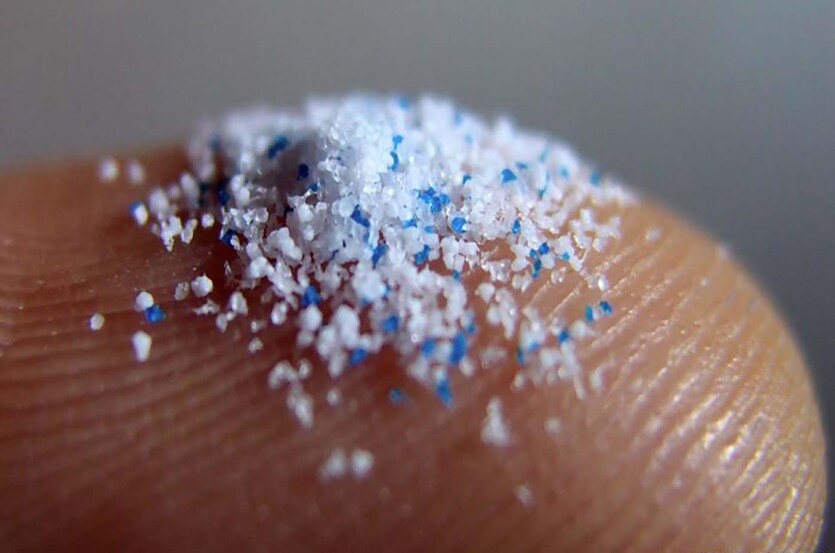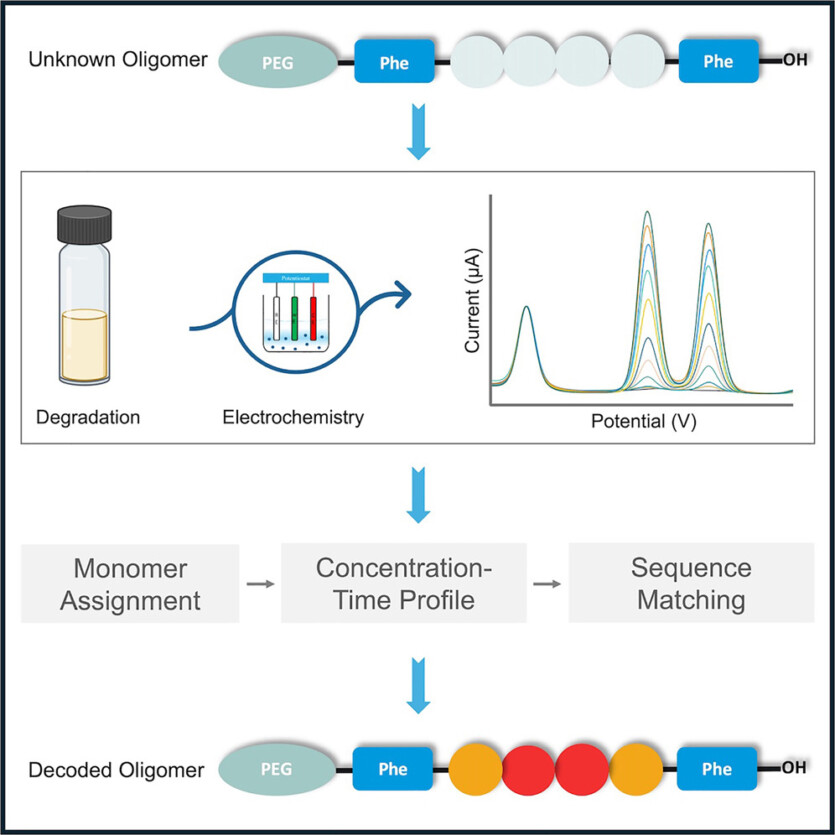
A team of engineers from the University of Texas at Austin (USA) has developed a way to store data inside synthetic polymer molecules.
The technology was created by analogy with data storage in DNA. The technology is capable of storing large amounts of data in a tiny volume for hundreds or even thousands of years. However, DNA-based data storage technology requires specialized and expensive hardware.
To solve this problem, American researchers have created four plastic molecules that are similar to the nucleotides in DNA, are assembled in specified sequences. Based on these monomer molecules with different electrochemical properties, the scientists developed an alphabet. Their combinations allowed to obtain 256 characters, from which the researchers generated the password «Dh&@dR%P0W¢» by encoding it into a polymer chain Importantly, the encoded data can be decoded using electrical signals, without the need for expensive and cumbersome mass spectrometers or lasers.

«This is the first attempt to write information into a plastic building block that can then be read using electrical signals, bringing us one step closer to storing information using conventional materials. The voltage gives you one piece of information — the identification of the monomer that is currently breaking down — and so we scan through different voltages and watch the molecule break down, which tells us which monomer is breaking down at which time. Once we determine exactly where the monomers are, we can put it together to get the identification of the characters in our coded alphabet», — explains one of the study’s authors, an engineer Pasupathi is right.
Currently, the disadvantages of this method are that the data can only be decrypted once, as monomials are destroyed in the process. In this case, decoding an 11-character password took 2.5 hours. The next step is to connect the polymers to chips for reading information by computers.
On the other hand, like DNA, synthetic molecular storage system, like the one proposed by the researchers, can store huge amounts of data in a tiny space for a long time. Hard drives and flash drives, on the other hand, are not as durable and require electrical power sources.
Petabytes on a crystal of a few millimeters: scientists have invented a new way to store data
The results of the study were published in the journal Chem
Source: ZME Science

Spelling error report
The following text will be sent to our editors: